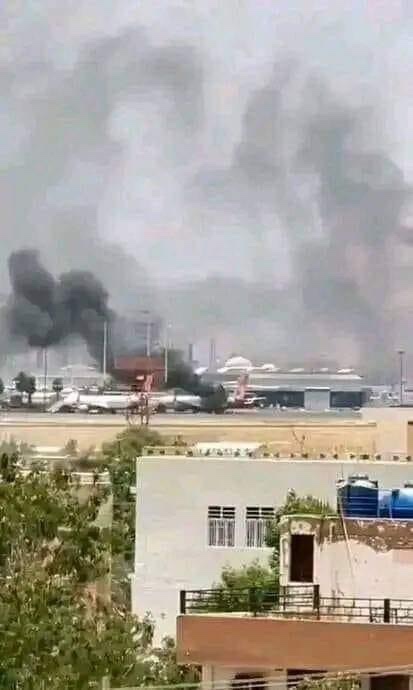A huge power struggle between the Sudanese Military and the paramilitary Rapid Security Forces (RSF) has led to open conflict in Sudan, with over 50 people already dead, according to local sources.
Residents of Sudan have largely stayed off of the streets in Khartoum, with those forced into the open allegedly having to dodge bullets as the rival camps wrestle for control over the second biggest country in Africa.
To read about the Crisis of Identity in Socotra click here.
What kicked off the current conflict in Sudan?
Both sides in the conflict have accused the other of either instigating the clashes, or indeed firing the first shots.
Currently both the army and the RSF claimed they had control of the airport and other key sites within Khartoum and the rest of the country, but as fighting continues it is impossible to verify either side.
Fighting has been seen in other parts of the country, including Omdurman, which is next to Khartoum, as well as in Port Sudan and Meroe, home of the Sudanese pyramids.
The army have publicly asked residents to stay inside, while the country’s air force hits RSF bases, a clear sign that the military has the upper hand.
According to Sudanese forces at least 56 civilians have been killed, with the injured running into the high hundreds. Military casualties are expected to be much higher.
What is the reason for the conflict in Sudan and what does it mean?
The fighting is between the Sudanese Armed Forces loyal to the national leader, Gen Abdel Fattah al-Burhan, and the RSF, which is commanded by Sudan’s deputy leader, Mohamed Hamdan Dagalo also known as Hemedti.
The two groups were instrumental in the overthrow of former long time dictator Omar Al-Bashir, although the RSF have also been accused of committing war crimes in the Darfur region of the country, an area still not fully under government control.
The RSF have said their troops would keep fighting until all army bases were captured, while the military have ruled out any negotiations “until the dissolution of the paramilitary RSF”.
Who are the players involved?
General Mohamed Hamdan Dagalo heads the Rapid Support Forces as well as being vice-president of the current ruling military junta, making him technically at least the second most powerful person in Sudan.
General Burhan is president of the junta and the de-facto president of Sudan. The conflict has partly arisen due to a lack of progress in integrating the RSF into the military and indeed the government, but also with regards to how quickly democracy should be achieved.
The army have “proposed” a two year transition period, while the RSF want to delay by at least ten years.
Mixed civilian-military rule was ended in 2021 when the army, RSF and other actors enacted a coup.
Why the conflict in Sudan will not lead to democracy?
In this conflict there really are no good and bad guys, but perhaps at least one side slightly less bad than the other.
They are though in essence two rival sides of what remains a military dictatorship, regardless of what timeline each suggests for a return to civilian rule.
The current major danger is that other actors and militant groups, of which there are many scattered around the country, as well as various political parties start to pick sides in the conflict.
The most likely scenario though at least according to our sources is that the military regain control over the commanding heights of the country, with the only change to the status quo being that there is one more “anti-government” group thrown into the soup that is the conflict in Sudan.
And as one contact we reached out to in Khartoum put it “It’s just a fight between the military. We expect it to be over quickly and for little to change”
With him further adding “We certainly don’t expect democracy regardless of who wins”
To read about travel to Sudan click here.

